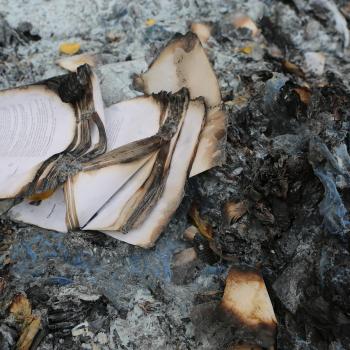Temple worship is the most obviously liturgical worship we have in the LDS Church. Temple worship is so highly liturgical in comparison to regular Sunday worship that the first experience of it is a shock for some Mormons. On Sunday the only obviously liturgical moment is the Sacrament. In spite of that, it helps me to think of Sunday School, indeed of most church instruction, as liturgical.
The word liturgy comes from an ancient Greek word that meant "public service," which explains why in English we often refer to "worship services." Catholic theologians have long pointed out that within Christianity, the service or work done in worship is an event rather than a product: the liturgy is an event that makes public our relationship to God.
For example, the ordinance of the Sacrament (what others call the Eucharist, Communion, or the Lord's Supper) doesn't just remind us of the body and blood of Jesus Christ and of the atonement worked through that body and blood, though of course it specifically does that. When the priests bless and we eat and drink the sacramental bread and water, something powerful happens: God blesses those elements at the request of the priest, and partaking in them allows us to re-enter into covenant with God. We covenant to become one in Christ's family by taking his name and to do the things that he has asked us to do, with the divine covenantal promise that he will be with us through his Spirit. (Taking his name and being obedient may be one thing rather than two.)
In a similar way, if Sunday School class is liturgical, perhaps something like an informal call-and-response, then being in class is about something other than calling past events or present doctrines to mind or about exploring something intellectually. Remembering and discussing are relevant to what happens in Sunday School, but they are not the essence of what we do there. Sunday School is to make a body of those we call brother and sister. In it we recognize our joint-heirship in God's Kingdom.
Understood liturgically, taking part in Sunday School is an expression of my membership in a faith community, an event in which we not only rehearse the beliefs we share, but are brought together in the body of Christ, neither intellectual nor nonintellectual, "neither Greek nor Jew, circumcision nor uncircumcision, Barbarian, Scythian, bond nor free: but Christ is all, and in all" (Col. 3:11).
The formulaic repetitions that I would otherwise cringe at concretely express the unity of Paul's neither-nor. In Sunday School that unity is no longer merely theoretical. Neither is it something that applies only to heroic or exceptional circumstances. Sunday School class brings to our attention that awareness of who is smarter, who is of what social class, and who has more experience in the Church is irrelevant to our renewal together in Christ. In Sunday School we perform that unity. When I have difficulty with Sunday School, that says something about my unity with the saints.
Seeing the hour between Sacrament and Priesthood as liturgical doesn't suddenly make it intellectually enriching. It doesn't mean that we can't hope for better teachers than we sometimes have. But it changes the meaning of the time, giving me a proper place within Sunday School as we celebrate being together in preaching and hearing the gospel in plainness and simplicity.





